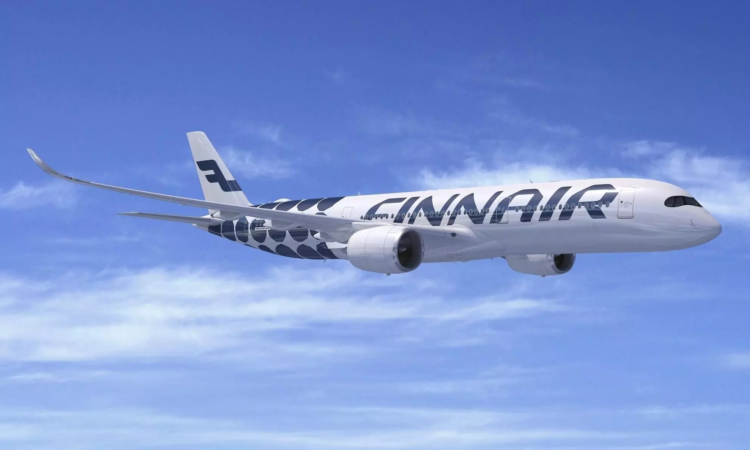Finnair’s net-zero ambitions and CN Logistics’ carbon neutrality drive converge in a new sustainability-led collaboration designed to reshape the environmental footprint of air freight.
In a decisive move toward decarbonising the aviation supply chain, Finnair and CN Logistics International Holdings Limited—part of the DP World Group—have announced a new partnership focused on the use of Sustainable Aviation Fuel (SAF) to reduce carbon emissions from air cargo operations. The initiative underscores a shared commitment to advancing sustainability in global freight movement and marks a strategic step forward in both companies’ climate action roadmaps.
Under this partnership, CN Logistics has co-funded a batch of SAF with Finnair, directly contributing to the reduction of Scope 3 greenhouse gas emissions associated with its international cargo shipments. This collaboration exemplifies how logistics providers and airlines can co-develop low-emission solutions and take joint responsibility for the climate impact of air transport.
“This is an important step in our ongoing efforts to increase the use of sustainable aviation fuel, and we are excited to begin this collaboration with CN Logistics,” said Gabriela Hiitola, Senior Vice President, Finnair Cargo. “We look forward to expanding our SAF partnerships in the future and invite all our customers to join us in reducing carbon emissions in air freight.”
Echoing the sentiment, Tim Ngan, Executive Director and Chief Executive Officer of CN Logistics, added: “This marks a significant step for CN Logistics to expand our efforts in driving CNL Green Solution’s Carbon Neutrality and CoCreate Green with Finnair. We look forward to further developing the adoption of SAF and engaging with more stakeholders to reduce the burden of airfreight carbon emissions on our planet.”
Supporting Net-Zero Goals with Tangible Action
This partnership aligns closely with Finnair’s long-term sustainability strategy, which includes a science-based target to reduce carbon emissions intensity—measured as CO₂e per revenue tonne kilometre (RTK)—by 34.5% by 2033 from a 2023 baseline. This target has been validated by the Science Based Targets initiative (SBTi) and supports Finnair’s broader ambition to achieve net-zero emissions by 2050.
To reach these targets, Finnair is actively investing in multiple avenues to lower its climate impact:
- Sustainable Aviation Fuel: The airline continues to ramp up SAF usage, supported by partnerships like the one with CN Logistics, to directly reduce lifecycle emissions from aircraft operations.
- Fleet Efficiency: Finnair operates modern Airbus A350 aircraft on the majority of its long-haul routes. These next-generation aircraft are 25% more fuel efficient than older A330 models, thanks to their lightweight materials, fuel-efficient engines, and advanced aerodynamics.
- Operational Measures: The carrier is also committed to improving operational efficiencies by reducing aircraft weight and integrating emerging technologies aimed at enhancing energy performance.
Greener Ground Operations: The COOL Nordic Cargo Hub
Sustainability extends beyond Finnair’s flight operations. At Helsinki Airport, the airline’s state-of-the-art COOL Nordic Cargo Hub, launched in 2018, has been designed with long-term energy and environmental performance in mind.
Certified under the BREEAM environmental assessment method, the terminal features:
- Nearly 3,000 rooftop solar panels supply approximately 37% of the facility’s energy requirements.
- Automated warehousing and guided truck yard systems which help streamline cargo handling and reduce idle emissions.
- An advanced waste management strategy, ensuring minimal landfill usage and supporting circular economy practices.
Circular Economy at the Core
Finnair has committed to achieving 100% material management across its Helsinki operations—meaning no operational waste will end up in landfills. Instead, waste is repurposed as energy, heat, biogas, or even as raw materials like compost or manure. The airline is also phasing out single-use plastics, promoting the recycling of packaging and cardboard, and developing reuse protocols for cargo-related materials such as nets, straps, and wooden pallets.
CN Logistics’ Commitment to Sustainable Freight
For CN Logistics, this initiative supports its “CNL Green Solution” platform, which serves as a cornerstone of the company’s carbon neutrality efforts. By investing in SAF alongside airline partners, CN Logistics aims to play a more proactive role in reducing Scope 3 emissions—a critical yet often overlooked component in freight’s climate impact profile.
The company’s collaboration with Finnair signals a broader shift in the logistics industry: one where sustainability is no longer a peripheral concern but a strategic imperative. As demand for low-emission shipping solutions grows, such partnerships will be vital in driving sector-wide transformation.
Conclusion
The Finnair–CN Logistics partnership sets a benchmark for climate-focused collaboration in the air cargo industry. By aligning their goals and investing in SAF, the two companies are not only mitigating their environmental impact but also catalyzing broader change across the freight ecosystem.
As SAF continues to gain momentum as a viable tool in aviation’s decarbonisation journey, such alliances underscore the power of collective action—where airlines, freight forwarders, and customers co-create a greener future for global trade.





